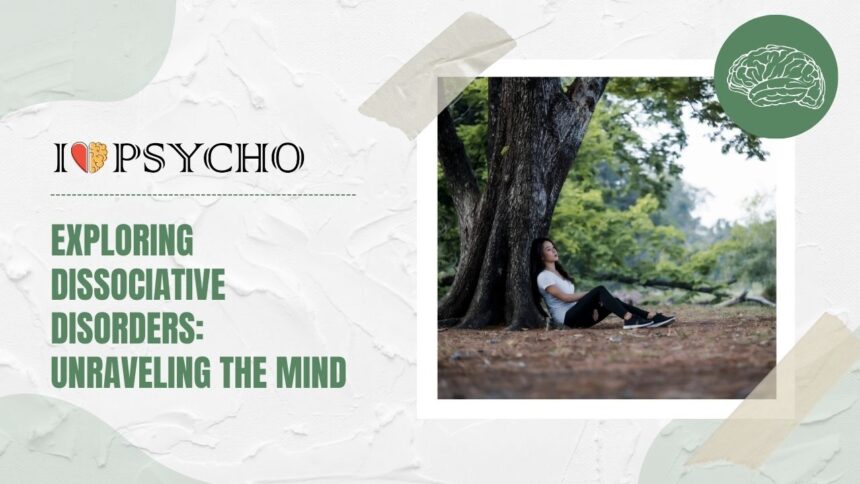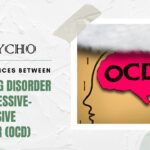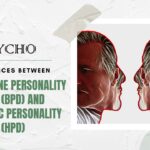Step into the intricate labyrinth of the human mind as we delve into the fascinating world of dissociative disorders. Join us on a journey to unravel the mysteries behind these complex conditions and gain insights into how they affect individuals’ lives. Let’s explore the nuances of dissociation, break down barriers, and challenge stigmas surrounding mental health together. Welcome to an exploration like no other – welcome to understanding dissociative disorders.
Defining Dissociative Disorders
Dissociative disorders are a cluster of conditions characterized by disruptions in an individual’s memory, identity, consciousness, or perception of reality. These disorders can manifest in various ways, ranging from mild dissociation to severe disconnection from one’s thoughts and surroundings.
Individuals with dissociative disorders may experience episodes where they feel detached from themselves or their surroundings, leading to gaps in memory or identity confusion. It’s essential to recognize that these experiences are not simply daydreaming or forgetfulness but rather profound disturbances in the way the mind processes information.
Understanding dissociative disorders involves acknowledging the complexity of human cognition and how trauma can impact an individual’s mental well-being. By shedding light on these conditions and fostering empathy and support, we can work towards creating a more inclusive and understanding society for those affected by dissociation.
Types of Dissociative Disorders
Dissociative disorders encompass a range of conditions that involve disruptions in memory, awareness, identity, or perception. One type is Dissociative Amnesia, where individuals experience memory loss due to stressful or traumatic events. Another form is Depersonalization/Derealization Disorder, which involves feeling detached from oneself or the environment.
Additionally, there’s Dissociative Identity Disorder (DID), previously known as Multiple Personality Disorder. This disorder entails the presence of two or more distinct personality states within one individual. Each personality state may have its own way of perceiving and interacting with the world.
Furthermore, Other Specified Dissociative Disorder and Unspecified Dissociative Disorder are categories used when symptoms don’t fit neatly into specific diagnoses but still cause distress or impairment in daily life. These variations highlight the complex and diverse nature of dissociative disorders.
Causes and Risk Factors
Have you ever wondered what factors contribute to the development of dissociative disorders? The causes and risk factors are multifaceted, involving a complex interplay of biological, psychological, and environmental elements.
Genetic predisposition may play a role in certain individuals, as research suggests a potential hereditary component. Traumatic experiences, especially during childhood such as abuse or neglect, are commonly linked to the onset of dissociative disorders.
Other contributing factors include high levels of stress, coping mechanisms that involve detachment from reality, and even cultural influences that shape an individual’s perception of self. Additionally, disruptions in brain function and chemistry can also be implicated in the manifestation of these disorders.
It’s essential to recognize that each person’s journey with dissociative disorders is unique and influenced by various intertwined factors. By understanding these complexities, we can move towards greater empathy and support for those navigating this challenging terrain.
Symptoms and Diagnosis
Symptoms of dissociative disorders can vary widely from person to person. Individuals may experience memory gaps, a sense of being detached from their emotions or body, and even identity confusion. These symptoms can be distressing and impact daily functioning.
Diagnosing dissociative disorders can be challenging as symptoms often overlap with other mental health conditions. A comprehensive evaluation by a mental health professional is crucial for an accurate diagnosis. This may involve interviews, self-report questionnaires, and observation of behavior patterns.
It’s important to remember that seeking help is a sign of strength, not weakness. If you or someone you know is experiencing symptoms of dissociation, reaching out to a healthcare provider for support is the first step towards healing and understanding the condition better.
Treatment Options
Living with a dissociative disorder can be challenging, but there are treatment options available to help individuals manage their symptoms and improve their quality of life. Therapy is often a key component in treating dissociative disorders, such as cognitive behavioral therapy or dialectical behavior therapy. These therapeutic approaches can help individuals identify and change negative thought patterns and behaviors that contribute to their dissociation.
In addition to therapy, medication may also be prescribed to address specific symptoms associated with the disorder, such as anxiety or depression. It’s important for individuals with dissociative disorders to work closely with mental health professionals to find the right combination of treatments that work best for them. Self-care practices like mindfulness techniques, yoga, or creative outlets can also complement traditional treatments and provide additional support on the journey towards healing.
Support from friends and family members is crucial in maintaining progress during treatment. Building a strong support system can offer encouragement and understanding during difficult times. Remember, recovery looks different for everyone – finding what works best for you is key in managing your dissociative disorder effectively.
Living with a Dissociative Disorder
Living with a Dissociative Disorder can be like navigating through a maze of emotions and thoughts that often feel disconnected from reality. It’s as if you are watching your own life unfold from the sidelines, unsure of where you fit in. The world may seem hazy, fragmented, and at times unreal.
Simple tasks can become overwhelming when your mind drifts away into dissociative episodes. Relationships might suffer as others struggle to understand your inner turmoil. Finding grounding techniques becomes essential to bring yourself back to the present moment amidst the chaos within.
Self-care takes on a whole new meaning when living with a Dissociative Disorder. It’s about recognizing triggers, seeking therapy, and building resilience day by day. While it may feel isolating at times, know that you are not alone in this journey towards healing and self-discovery amid the complexities of the mind.
Breaking the Stigma Surrounding Mental Health
Let’s talk about breaking the stigma surrounding mental health. It’s crucial to understand that mental health is just as important as physical health. Yet, there are still misconceptions and prejudices that surround it.
People living with dissociative disorders or any other mental health condition should never feel ashamed or judged for seeking help. Opening up about your struggles takes courage and strength – it’s a step towards healing and recovery.
Education plays a vital role in dismantling stigmas associated with mental health. By spreading awareness, we can foster understanding and empathy within our communities.
We must encourage open conversations about mental health to create a safe space for individuals to share their experiences without fear of being stigmatized.
Together, we can work towards creating a more inclusive society where everyone feels supported and accepted regardless of their mental health challenges. Let’s break the stigma together!
Conclusion
Understanding dissociative disorders is crucial in breaking the stigma surrounding mental health. By unraveling the complexities of these conditions, we can offer support and empathy to those who are living with them. It’s important to educate ourselves and others about these disorders to create a more inclusive and understanding society. Remember, seeking help is a sign of strength, not weakness. Let’s continue to explore the intricacies of the mind and promote mental well-being for all.









